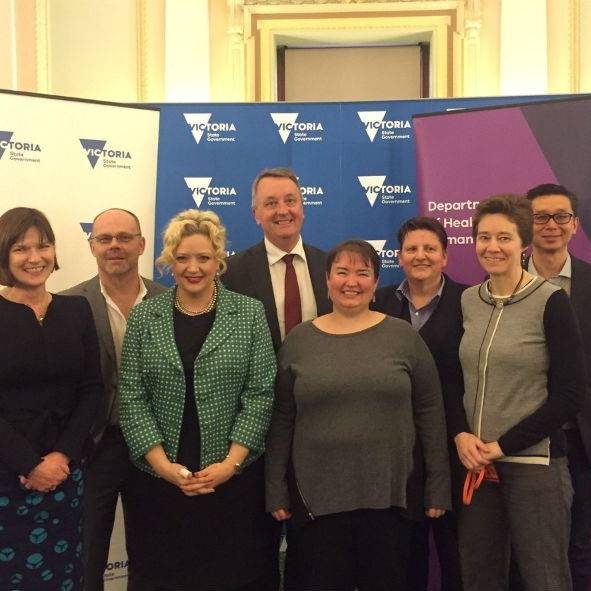
Legal protections from discrimination for gay, lesbian, bisexual, transgender and intersex people could become a reality if the Government passes a Human Rights Bill.
Leading LGBTI organisations, Transgender Victoria (TGV), Organisation Intersex International (OII) and the Victorian Gay & Lesbian Rights Lobby (VGLRL) have today welcomed a report on Federal Anti-Discrimination laws and called on the Government to pass the bill before the election.
“Today’s report confirmed that all political parties agree gay, lesbian, bisexual, transgender and intersex (LGBTI) people deserve protection from discrimination, echoing the 85% of Australians who support these protections.” said VGLRL Convener, Anna Brown.“It’s time for these proposals to become a reality by the Government passing these laws before the election. We urge the Government to adopt the recommendations of the Committee and pass the legislation as soon as possible, to deliver on its commitment to introduction discrimination protections on the basis of sexual orientation and gender identity,” said Ms Brown.
Introducing legal protections from discrimination for gay, lesbian, bisexual, transgender and intersex people will help address the high levels of prejudice, stigma, and discrimination that cause significant harm to LGBTI people and contribute to higher rates of depression, self-harm and suicide. These reforms enjoy a high level of political and community support and have been the subject of five separate inquiries over the past 17 years. Today’s report by the Senate Legal and Constitutional Affairs Committee on the Human Rights and Anti-Discrimination Bill is the most recent to support these laws being introduced at a national level.
“The Government has said it was waiting for this report before it could proceed. Well now that the Senate committee has affirmed the importance of LGBTI human rights, the bill should be passed before the election.” said TGV spokesperson Sally Goldner
The report responds to the vast majority of the concerns raised by the VGLRL, OII, TGV and other LGBTI organisations.
In particular, the report recommends changes to better protect transgender and intersex people from discrimination. The Committee recommends the definition of the ‘gender identity’ attribute be amended and that ‘intersex’ be added as a separate attribute. Such an approach will recognise intersex people accurately and identify the need for anti-discrimination legislation to protect them from harm.
“The proposed changes to definitions are in line with best practice in Australia and will better protect intersex and transgender people from discrimination,’ said Councillor Tony Briffa, spokesperson for OII Australia. “It is pleasing all political parties see the need for these protections, and we urge the Parliament to pass this legislation well before the federal election,” added Councillor Briffa. “The recommended definition of gender identity sets a good benchmark for national harmonisation and fills some gaps in existing protections for transgender people at a State and Territory level, particularly in Western Australia,” said Ms Goldner.
The Committee also recommends that exceptions allowing religious organisations to discriminate be narrowed and their use be made more transparent.
“Religious groups should not be given free licence to discriminate against LGBTI people and single mothers and de facto couples,” said Ms Brown. “The changes better balance freedom of religion with the right to be free from discrimination. In particular, people should be told if they are to be discriminated against so they can make an informed choice about applying for a job or buying goods or services. The proposal that religious service providers and employers publish their intention to discrimination encourages transparency and makes common sense.”
However, the Committee’s majority report overlooked the issue of a Commissioner for the LGBTI community. “We urge the Government to ensure that responsibility for sexual orientation, gender identity and now intersex issues is vested in a particular Commissioner and this be enshrined in law, just as we have Commissioners for Race, Disability, Age and other areas,” said Ms Goldner.


